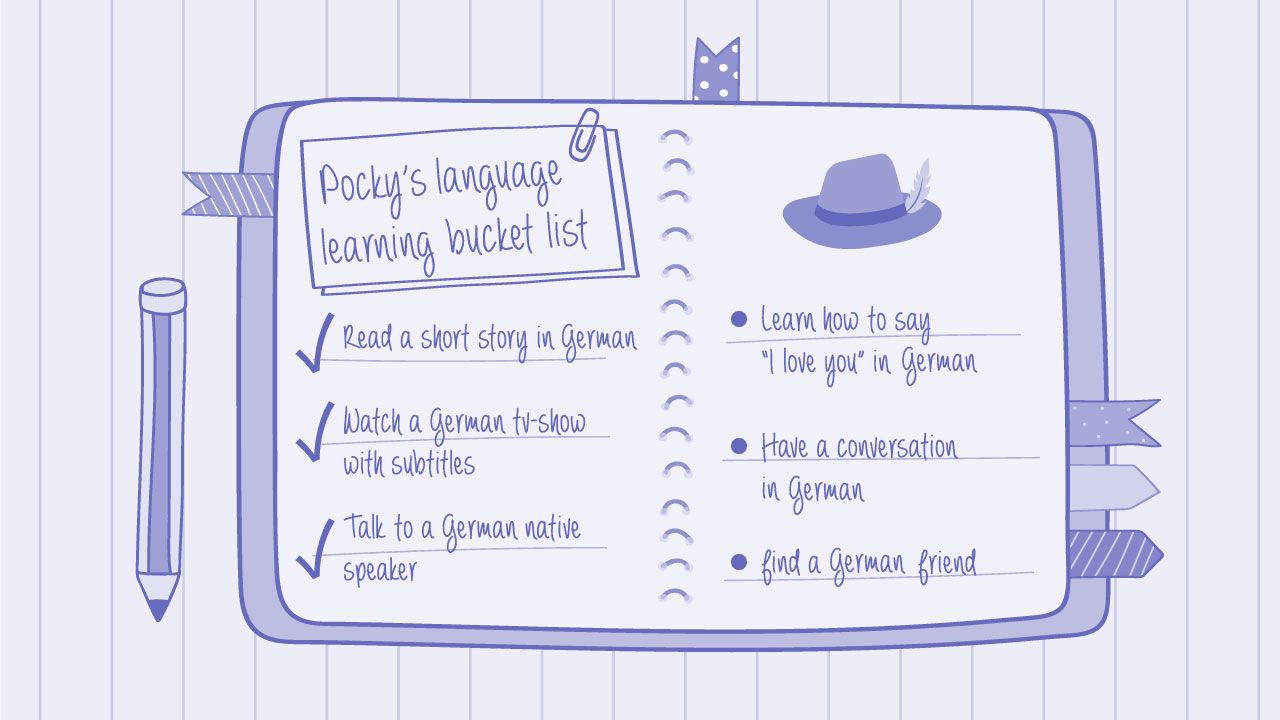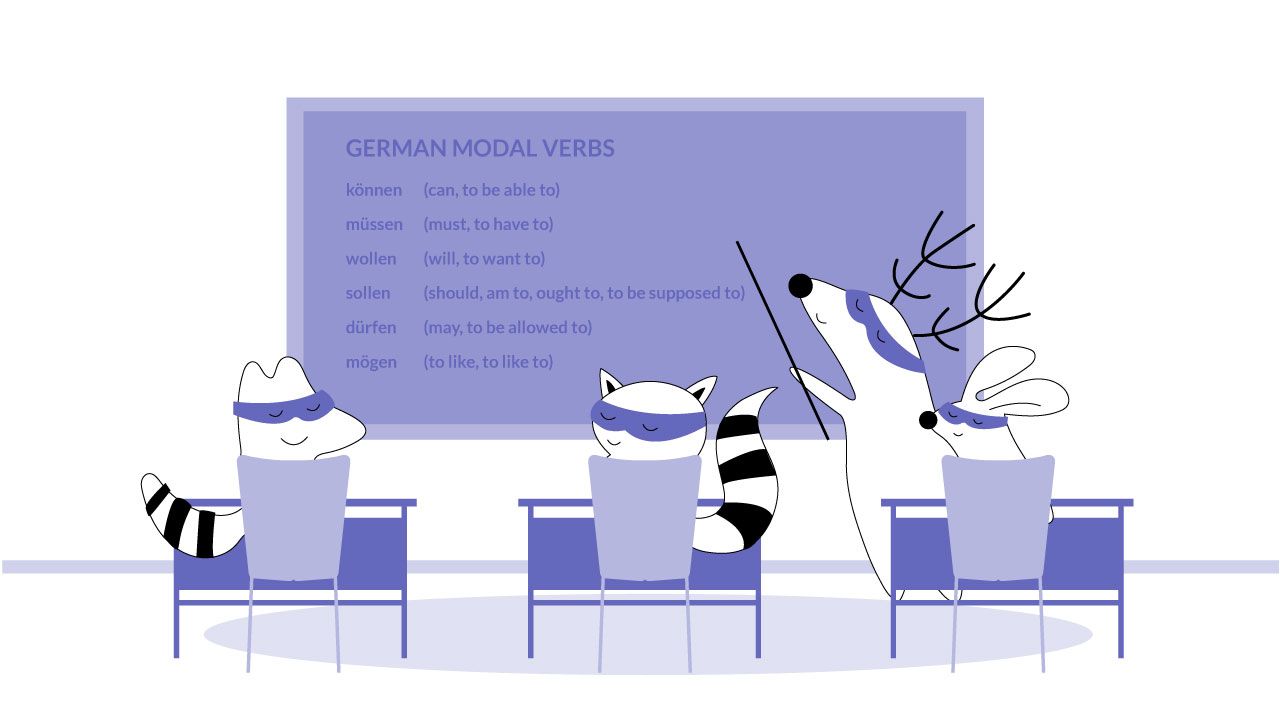
Some say that learning a new language takes years of study. However, that is not always the case. Anyone who has learned German quickly will tell you that it is possible to speak a foreign language fluently without spending years in a classroom.
In fact, there are many ways to learn German fast – you just need to know what techniques work best for you.
So if you want to boost up the language learning process and speak German fluently as quickly as possible, check out our short list of best tips. Combining learning methods, finding your best way of learning, seeking out a study buddy – these are just a few things that can help you learn German faster. Read on, find your way – and learn German in no time.
Learn German with Langster
1. Find Your Learning Style
When it comes to learning a new language, everyone has their own way of absorbing and retaining information. Some people learn best by listening, others by reading, and still others by speaking. The key to learning German quickly is to figure out how you learn best and use it as much as possible when you're studying the language.
If you're a visual learner, for example, find German books or comics that you can read, watch German movies or TV shows, or look for online resources that use pictures and other visuals to teach the language.
If you learn best by listening, try to find audio materials like German songs or podcasts, or look for a German-speaking friend who can help you practice speaking. And if you're a kinesthetic learner, consider using apps and games that let you physically interact with the language as you learn it.
2. Set Up Your Goals to Keep You Motivated
One of the best ways to learn German quickly is to set yourself some specific goals to work towards. Having a goal in mind will help keep you motivated and focused as you study German, and it will give you something to work towards so that you can measure your progress.
Some goals you might want to set for yourself include:
- Learning a certain number of common German words or phrases each week
- Visiting a German-speaking country in a year
- Being able to have a basic conversation with a native German speaker within several months
- Reading a German book or article all the way through without using a dictionary
- Watching a German movie or TV show without subtitles

3. Mix Different Learning Methods
When you're trying to learn German fast, it's important to mix up your learning methods so that you don't get bored. Instead of doing just one activity, like listening to audio lessons or reading German books, try to vary your methods and change things up on a regular basis.
Use a variety of German language learning resources. For example, you could listen to audio lessons one day a week, and the next day, read a German grammar book or practice your conversation skills with a native speaker. You could also hire a tutor or sign up for German lessons as well as download an app created for learning German.
By using different methods, you'll be able to keep your motivation high and learn more effectively.
4. Make the Learning Easier
Organizing the language can make learning German a lot easier. When you're trying to learn a new language, it can be helpful to create a system for yourself so you can recall things instantly.
Here are some tips that should help you do that:
Use Vocabulary Lists to Learn German Words
One of the best ways to learn new vocabulary quickly is to make yourself a list of all the words you want to learn and then review them regularly. Many language learners write the words down in a notebook, create digital flashcards, or use an app like Anki or Quizlet.
As you review your list of words, make sure to vary your memorizing techniques for the best results. For example, you could review the words by writing them out, saying them aloud, or testing yourself on their meaning (or you could do all that in the Langster app).
Learn Irregular and Modal Verbs
German has a lot of irregular verbs, which is a hurdle for many German learners. However, you can make things easier on yourself by focusing on learning the most common irregular verbs first. Once you know these verbs, you'll be able to use them in a variety of different situations and they'll help you build a foundation for learning other German verbs.
Similarly, modal verbs are also very important in German. They indicate ability, necessity, or possibility and are used very frequently in everyday conversation.

Because of the way German grammar works, you can use modal verbs as a shortcut to start speaking. When used in a sentence, modal verbs take the place of the main verb, while the verb you’re trying to use is put in the infinitive. So, basically, learning the seven modal verbs will help you express almost everything you need without having to conjugate whether regular or irregular verbs.
Deal with German Syntax First
German sentence structure can be confusing, but it's important to try to understand it as best you can from the beginning. Once you know how German sentences are typically structured, it will be easier for you to form your own sentences and understand what others are saying.
A good way to learn about German syntax is to read German books or articles and pay attention to the way the sentences are constructed. You can also look up specific grammar rules when you're not sure about something.
Learn Prepositions With Cases and Articles with Nouns
In German, articles and nouns both change depending on the case in which they're used. Cases indicate the function of a word in a sentence, and each case is used with a certain preposition.
Tackling the challenging topic of German cases can be very difficult, but if you learn them together with prepositions, the process would be much easier and quicker.
Another important thing to remember is German gender. In German, grammatical gender doesn't necessarily equate to the gender of the thing or person, which is why it can get really tricky, especially if you're not sure which article for the noun to choose – masculine, feminine, or neuter? Learning articles with German nouns can help you get the hang of the German genders a lot faster.
5. Speak More
If you want to move deeper into the German-speaking world and either move to Germany or simply start understanding real German speakers, speaking skills are essential. When you speak, you're able to use the language in a real-life situation and get feedback from others. Moreover, in conversations, you also hear German – so work on your listening comprehension as well.
There are many different ways to get practice speaking German, from attending conversation classes to chatting with native German speakers online. You can also find a study buddy – someone who wants to learn the German language together with you, so that you can practice together as well as tackle different topics in tandem.

6. Learn More About German Culture and History
When you learn about the culture and history of a country, you're able to understand the people and the language better. This is because all those are closely connected to each other, and if you know about some details from German history and culture, you'll be able to understand the nuances of the language better.
Additionally, when you know more about a country's culture and history, you'll be able to communicate with native speakers in a more meaningful way. You'll be able to discuss shared experiences and talk about things that you have in common, and maybe pick up a few German idioms.

This will make learning German much more enjoyable for you – and maybe even help you make some German-speaking friends.
7. Practice Regularly
Of course, the most important thing about learning German fast is practicing your language skills every day. Even if you can only spare a few minutes, using the language regularly will help create more neural connections in your brain and improve faster.
There are many different ways to get German practice, from listening to audio lessons to reading a page of a book, to chatting in German online. Make sure to vary your activities so that you don't get bored, but remember to keep it regular.
Final Notes
There is no one-size-fits-all answer when it comes to learning to speak German fluently – what works for someone else may not work for you. Finding the right way to learn German quickly can be a daunting task, but it's important to customize your language acquisition plan and find the method that works best for you. Remember, all German learners are different.
Plan your language learning journey in such a way that it’s enjoyable and rewarding for you. and find the activities and resources that make you happy. And don't give up – keep trying until you find something that works for you, and stick with it. With practice and perseverance, you'll be speaking fluent German before you know it.









